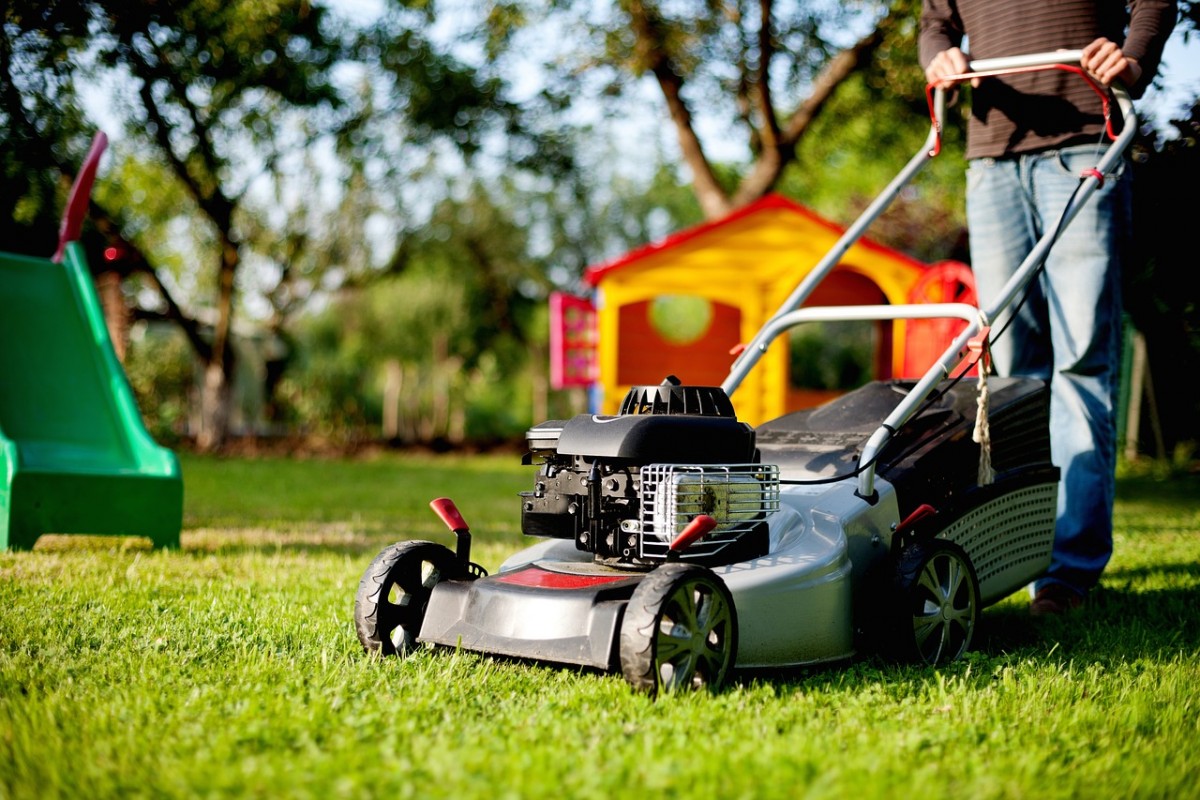
Spring in Minnesota: an exhilarating time of year for green-thumbed snowbirds looking to defrost.
But before you’re overcome by spring fever, take a closer look at how you’re servicing your lawn and garden. Does your yard maintenance routine make the most of our environment, or does it make for a lot of stormwater runoff?
Last month, we expressed the importance of water conservation. This month, we’re urging you to help us minimize local water pollution. To support the health and well-being of all living things, we must keep nature’s gift clean and untainted.
Ready to be a Water Warrior? Continue reading to find out how!
1. Fertilize the right way.
Before you fertilize, test your soil to make sure you’re treating your lawn with the proper amount of fertilizer. A test kit will determine which nutrients your soil needs and if your soil needs fertilizing in the first place. Don’t fertilize if you don’t need to!
IMPORTANT: Watch out for phosphorus—a common ingredient in some lawn fertilizers. When this chemical flows into lakes and streams, it feeds harmful algal blooms. These scummy, green blooms are known to starve out fisheries, close down beaches, and pose bodily harm to humans and wildlife. Phosphorus also feeds the especially dangerous blue-green algae blooms (or cyanobacterial algae) that have a history of killing pets and making humans very sick.
Don’t risk it—always check the ingredients before you fertilize with a chemical treatment.
2. Water the right way.
Since water is such a precious resource, try to avoid over-watering your lawn and garden when you can.
We recommend using barrels to collect rainwater outside, then giving the fresh rainwater to your plants. Not only is this a great way to reduce water usage; rainwater contains less dissolved salts than the water that comes out of the hose, so it’s actually healthier for plant life. Try to water when it’s cooler outside, like at dusk, so that less water evaporates during the day.
Did you know that trees are also a great way to keep your plants watered? Their natural umbrella shape helps them to collect rainwater and disperse it to other surrounding plants. This means that when it rains, the rainfall gets infiltrated back into the soil and feed the roots of plants nearby—instead of being wasted down a storm drain. How cool is that?!
3. Mow the right way.
Longer grass holds moisture better than short grass since there is less evaporation, but don’t worry—we’re not telling you to skip mowing altogether! Just set your mower blades a notch higher than you normally would and your lawn will need water less frequently. Before you fire up your mower, be sure to check that it’s not leaking any oil or gasoline. These dangerous materials are not just bad for your plants… they also contribute to water pollution!
4. Dispose the right way.
We know not to ingest hazardous chemicals, like paint, motor oil or harsh cleaning products—so why would we feed them to the earth?
If you’re working with hazardous materials this lawn season, do not dispose of them in sinks, toilets or storm drains! To prevent these products from leaking into your local water supply, always make sure to recycle these products at the appropriate waste management facility. Failure to properly dispose of hazardous waste can result in fines, soil contamination, air and water pollution, and poses health risks for humans and animals. You can find out more about hazardous waste disposal sites at www.epa.gov.
5. Plant the right way.
Did you know that by simply planting your green friends the right way, you can keep them living longer without much watering?
One easy trick is to install your garden in early spring or early fall when temperatures are cooler. This gives the roots plenty of time to deepen into the soil and soak up more groundwater—meaning you don’t need to water them as often. Try planting marigolds or mint in the area to help your garden ward off pests, and cushion mulch around your plants for soil that stays moistened for longer spans of time. Mulch is also known for keeping weeds at bay, so there is no need for harsh chemical treatment!
Having a beautiful yard doesn’t have to compromise water quality. Just monitor your water usage, use chemicals in moderation and try out natural lawn care remedies when you can. We believe in you, Water Warrior!
